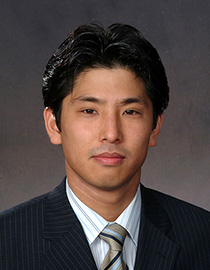 Dr. Arum Han, associate professor in the Department of Electrical and Computer Engineering at Texas A&M University, received a grant from the National Institutes of Health (NIH) to develop brain-on-a-chip for drug development against neurological disorders.
Dr. Arum Han, associate professor in the Department of Electrical and Computer Engineering at Texas A&M University, received a grant from the National Institutes of Health (NIH) to develop brain-on-a-chip for drug development against neurological disorders.
Organs-on-chips are microfluidic cellular systems that can accurately mimic the functions and responses of physiological systems of animals and humans. These miniature tissues and organs, also called microphysiological systems, are expected to have a huge impact in broad ranges of applications as they can overcome the limitations of currently used biological assays and animal models. Having the capability to better predict human physiological responses without having to use animal or human models can lead to better understanding of disease mechanisms and accelerate drug development and toxicity screening.
Through this new NIH grant, Han and his collaborators, Jianrong Li, professor in veterinary integrative biosciences, and Yoonsuck Choe, professor in computer science, will develop a brain-on-a-chip system that will be the first high-throughput myelination model system of the central nervous system. This system will have physiologically relevant responses and will be amenable to high-throughput drug screening applications.
Two technological innovations will drive the development of this system. Microfabrication and microfluidic technologies will enable the team to build multicellular architectures with accurate control of their surrounding microenvironments on small disposable chips that can be mass manufactured at a low cost. Lab-on-a-chip technologies, while complex, labor-intensive and time-consuming assays, can be integrated on a chip format and will enable the team to fully automate the entire assay, allowing rapid and efficient drug screening. It is the team’s hope that this development will lead to a new method in discovering novel small molecules that can stimulate remyelination, laying a solid foundation for the next phase of translational investigation.
The team’s effort is also part of the Texas A&M One Health Initiative under the Accessible & Affordable Quality Health Care Grand Challenge, where Han is leading the microphysiological system initiative “Miniature Tissues and Organs for Detection and Prevention of Diseases,” which focuses on development of next-generation biologics through microphysiological systems.
Han has made significant contributions to the field of microfluidic lab-on-a-chip systems for health and renewable bioenergy applications. He is the recipient of the E. D. Brocket Professorship Award, the Engineering Genesis Award for Multidisciplinary Research, the Eugene Webb Faculty Fellow and the Texas A&M Engineering Experiment Station (TEES) Fellow.